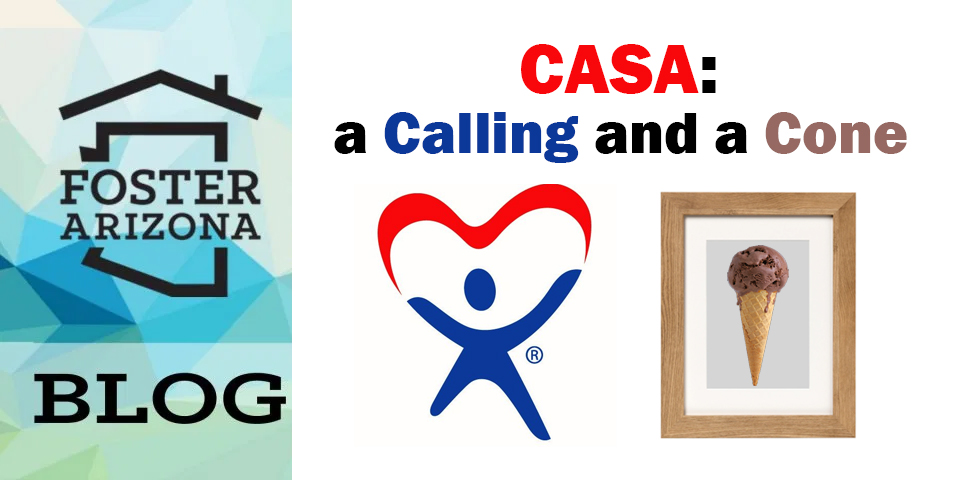After 30+ hours of classroom training and even more hours of prayer and preparation, I was assigned my first case as a CASA (Court Appointed Special Advocate). The facts of the case: elementary aged brother and sister in a foster home on the other side of town; mom incarcerated; dad’s whereabouts unclear. I was given names and contact information, and with a bit of apprehension I reached out to the legal parties and made a call to the foster home.
As I waded into the case, I constantly reminded myself of my calling as a CASA – to be the eyes and ears of the court to empower them to “meet” a child who often never steps foot in the courtroom.
Several phone calls, emails and visits to DCS offices helped me to finally find the children two home-moves after where I was told they were. I further learned that bio-dad was incarcerated and there was another sibling who had a different father who was deceased.
Meeting the children for the first time was an experience of uncertainty – for everyone. Although I had my own children, I had never taken such a role in the life of someone else’s, especially those who had been in over 15 homes by the time they were 7 and 9. When I first met my 7 year old boy, he put a toy gun to his head, clearly looking for a reaction. The best I could come up with was, “You look silly.” He shrugged and walked away. I had no idea if I had averted a crisis or watered a weed.
As December approached, I struggled with what to do about Christmas. I knew positioning myself as Fairy Godmother was not in anyone’s best interest. So early in December, we had an ice cream date where we took funny pictures which I printed and framed. When my tough little 7-year old opened his present, he cried. As I consoled him, I learned that he had never had a printed photo of himself before. There were no school photos of him hanging on a fridge. No family photos anywhere with his precious little face. Well, now he had a picture of himself with his CASA – with a chocolate ice cream smudge on his lips.
Eventually, bio-dad’s rights were severed as he was non-responsive and disinterested in parenting.
The imminent date of severance for mom was right about the time of her scheduled prison release. Although legal parties were pushing for severance, I decided to visit her in prison. I sat across from a stoic and hard woman. When I looked her in the eye and asked if she loved her children, she recounted her faithful steps towards sobriety and efforts to obtain her GED while in prison. When I asked why she was doing those things, she told me it was because her kids deserved a good mom. I acknowledged the truth of that statement and followed up with the fact that she deserved good things too. She began to weep. She told me no one had ever told her she deserved anything good before. She too had been raised in the system. It struck me that 30 years earlier, I could very well have been advocating for her.
My first case took over three years to resolve. The kids made one final move – to live with their older sibling and his paternal Grandmother. Mom was released from prison and worked to regain custody of her kids. Unfortunately, her struggle with addictions was too much for her. She made the hard and sacrificial decision to voluntarily waive her parental rights so her children could be adopted by their half-sibling’s Grandmother.
Over nearly 10 years, I was a CASA and a CASA Peer Coordinator – championing other CASAs to strike that incredibly hard balance of caring enough to make a difference while maintaining objectivity. Digging enough to uncover critical information while trusting the process and people who work diligently every day in the trenches. I like to believe I did a good job being the eyes and ears of the court, helping judges to “meet” children who never stepped into their courtroom. It’s not an easy calling, but it is oh so worth it. And as I reminisce on my first case as a CASA, I know I left two shuffled about children who had been in over 15 homes in a forever home … in a family. It wasn’t my doing, but I got to champion them through the system to permanency. And I’m confident there are now more photos than that chocolate smeared smile with a CASA.
by Kim Watson, PhD, PMP
Former CASA, CASA Peer Coordinator
Kim@alliancepro.com
